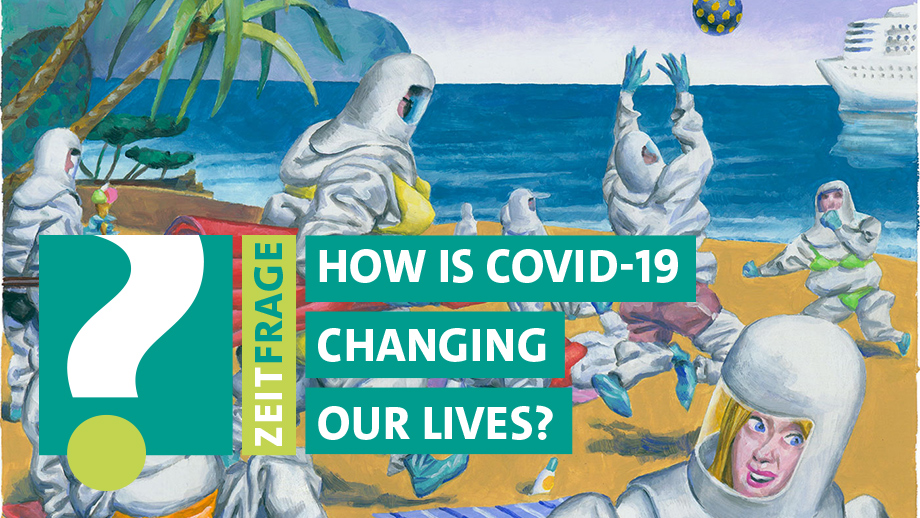A World Turned Upside Down

Coronavirus has turned the world as we know it on its head. Many things we took for granted are now being questioned. The invisible bug has become an existential threat – to our health, society and economy. The world has gone into crisis mode. The new UZH Magazin explores the crisis from a variety of perspectives – and asks whether, as well as being threatening and disruptive, it could also be a turning point. The question facing us is: Where do we go from here? What can we learn from crises like this?
Three main themes emerged from our conversations with UZH researchers: Resilience, collaboration and learning new things.
Resilience
The crisis is putting our ability to withstand privation to the test, individually and as a society. Psychologist Ulrike Ehlert and theologian Thomas Schlag know what gives us strength at such times. Personal sources of energy include optimism, self-efficacy, faith and spirituality. These things can help us overcome adversity. But a prerequisite for that is radical acceptance of the problems. We have to face the difficulties and find a way to cope with them.
As we are seeing at present, some countries and societies are more resistant to crises than others. Countries that are well organized and have effective social welfare systems to support their citizens, like Switzerland and Germany, are better able to get through crises. “Our social institutions may be costly,” says historian Matthieu Leimgruber, “but they mean people don’t have to fear the future.”
Collaboration
A pandemic can only be successfully tackled if policy-makers, scientists and the general public all work together. The picture is mixed so far in this regard. Researchers from all over the world are currently working together to a greater extent than ever before in order to research the virus, improve treatments and develop a vaccine. That’s good news. Also from a societal perspective, people have until now acted with surprising solidarity. Such behavior cannot be taken for granted though. Acting with solidarity is cognitively demanding, says psychologist Johannes Ullrich, and it contradicts our natural tendency to look out for number one.
An area that does not come off so well, however, is international political cooperation. Most governments have chosen to follow their own national course when tackling the crisis. But a global pandemic can only be tackled by working together. That ought to be the task of the World Health Organization (WHO). The WHO is indeed making such efforts, but at the same time its power is being weakened, for example by the USA cutting funding.
Learn new things
Finally, the corona crisis is forcing us to learn new things – first and foremost, understanding the biology of the virus and its effects. This step was neglected in previous pandemics such as SARS in 2003, says epidemiologist Milo Puhan, which means today this information is lacking. Puhan is leading a large-scale study on the spread of the coronavirus in Switzerland, which should provide important information to guide the easing of lockdown measures.
Last but not least, the corona pandemic has taught us that in the future, we need to think more about the future. Specifically, we should be developing scenarios for future crises and potential countermeasures. “Maybe we need a department of science fiction authors,” says economist Joachim Voth, “to fantasize about all the dreadful things that could happen in the future.”